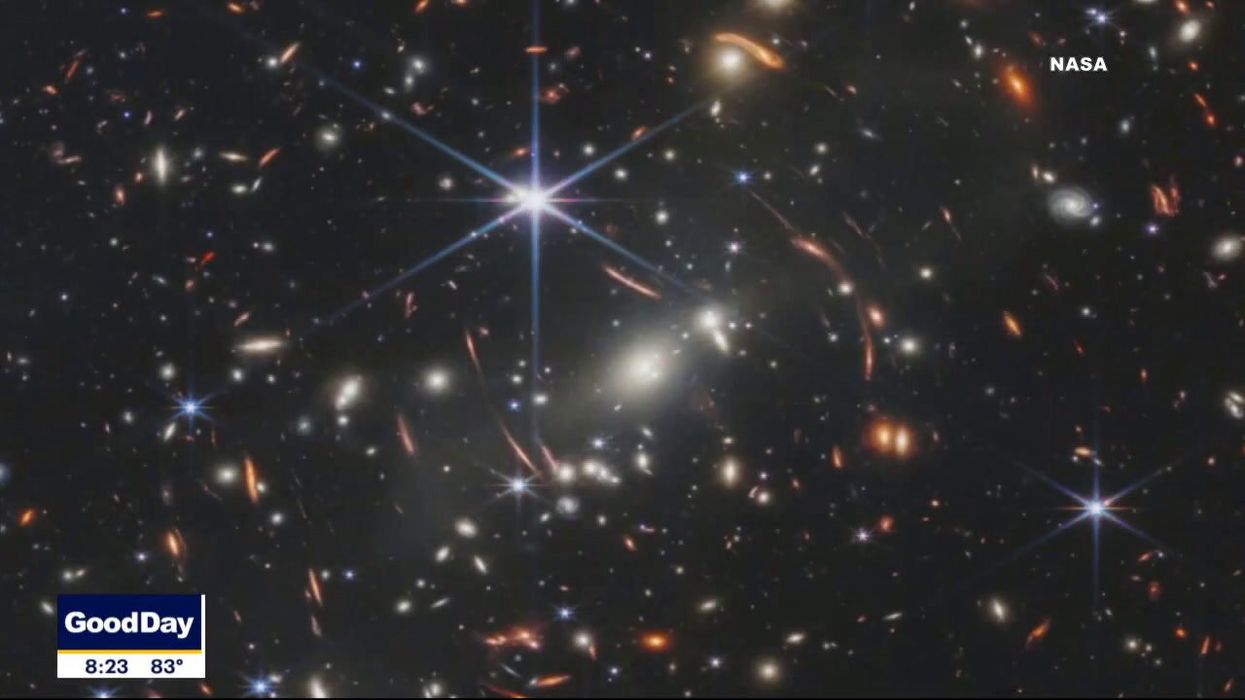Harry Fletcher
Jul 15, 2023
New image from NASA's James Webb space telescope
content.jwplatform.com
A mysterious new set of stars has been detected by Nasa’s James Webb Space Telescope, which could shed new light on dark matter.
Dark matter remains one of the most hotly debated elements in our solar system, and the new objects could change the way it is studied.
Scientists believe the huge, newly-discovered stars are powered by illusive dark matter and shared their findings in the journal PNAS.
“Discovering a new type of star is pretty interesting all by itself, but discovering it’s dark matter that’s powering this – that would be huge,” said study co-author Katherine Freese from The University of Texas in Austin.
Sign up to our free Indy100 weekly newsletter
The dark stars, known as JADES-GS-z13-0, JADES-GS-z12-0 and JADES-GS-z11-0 – were first identified as galaxies last December. It’s thought that they existed about 320-400 million years after the Big Bang, making them some of the earliest objects ever seen.
The nature of dark matter continues to fascinate and mystify the scientific community. It’s believed that it could be formed by a new type of undiscovered particle, and the theorised component of the universe does not absorb, reflect or emit light.
It’s also thought that suspected dark stars like these could explain a potential anomaly surrounding the number of large galaxies in the early universe. Currently, there are too many to fit the predictions of the theories surrounding the origins and the future of the universe.
“It’s more likely that something within the standard model [of cosmology] needs tuning, because proposing something entirely new, as we did, is always less probable,” Dr Freese said.
“But if some of these objects that look like early galaxies are actually dark stars, the simulations of galaxy formation agree better with observations,” she explained.
Have your say in our news democracy. Click the upvote icon at the top of the page to help raise this article through the indy100 rankings.
Top 100
The Conversation (0)














